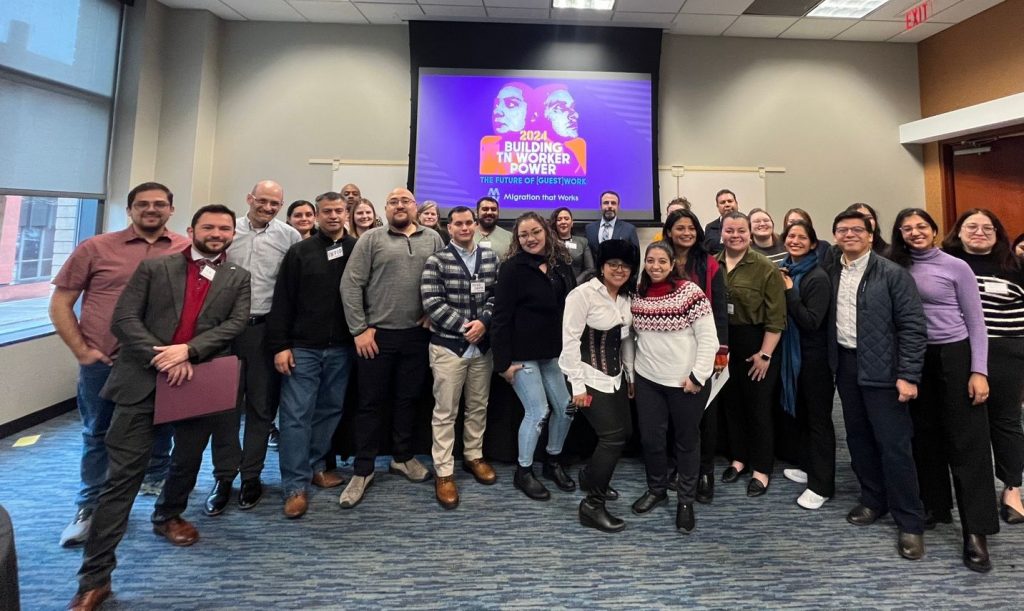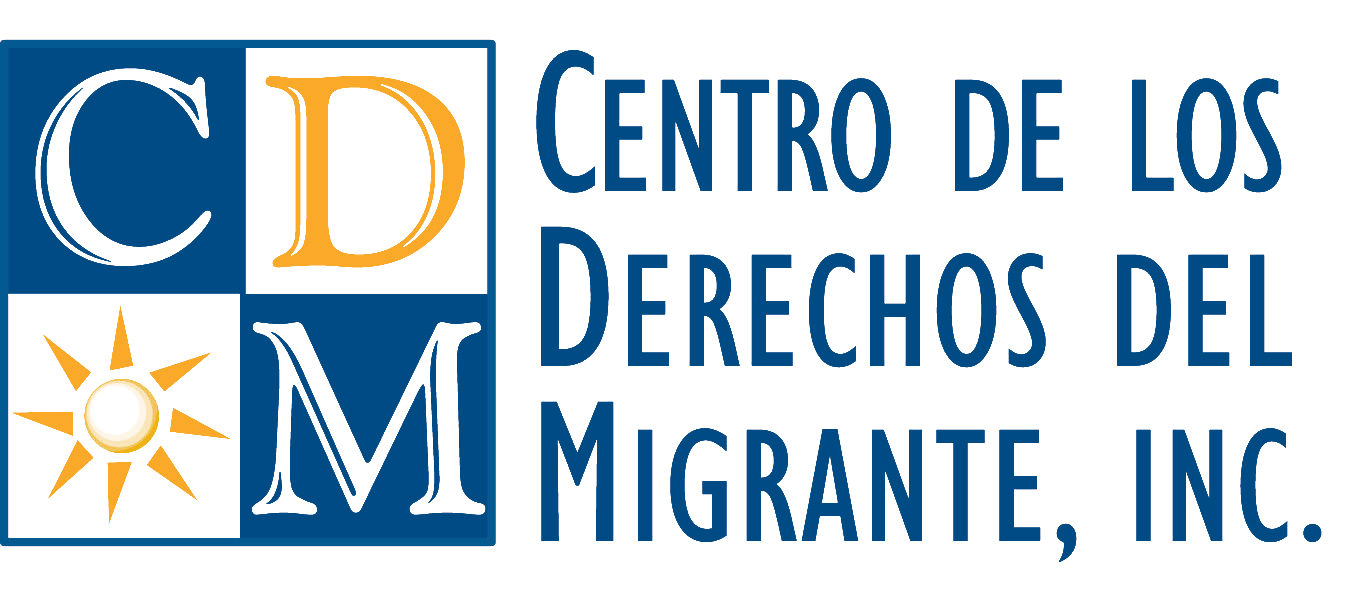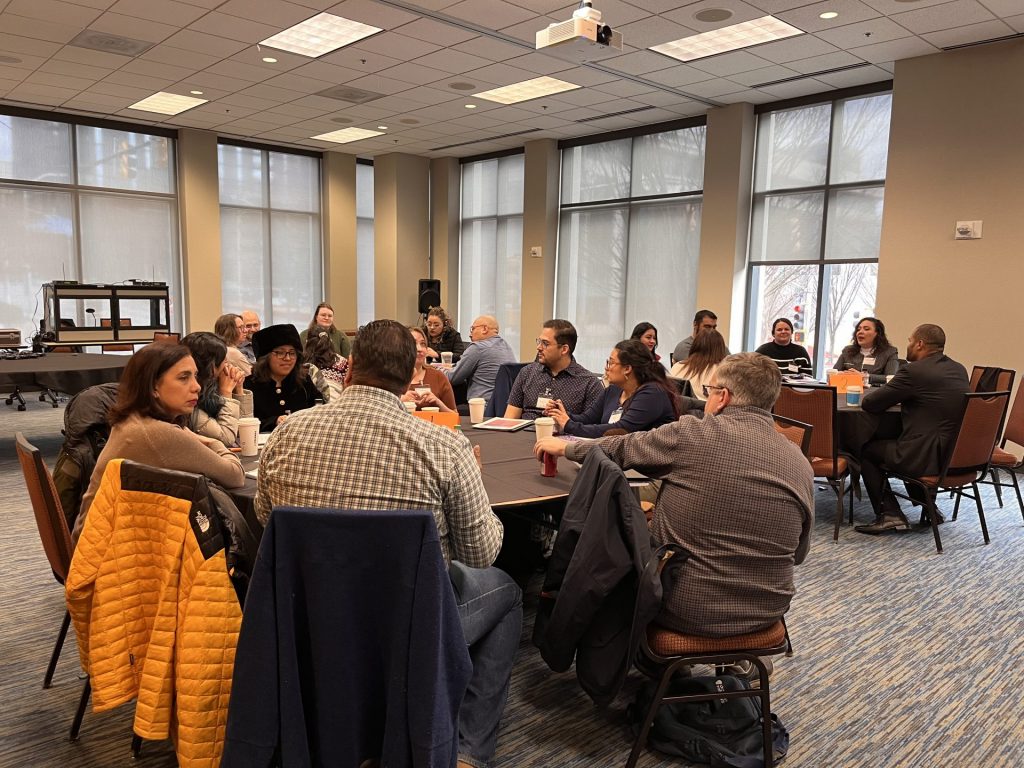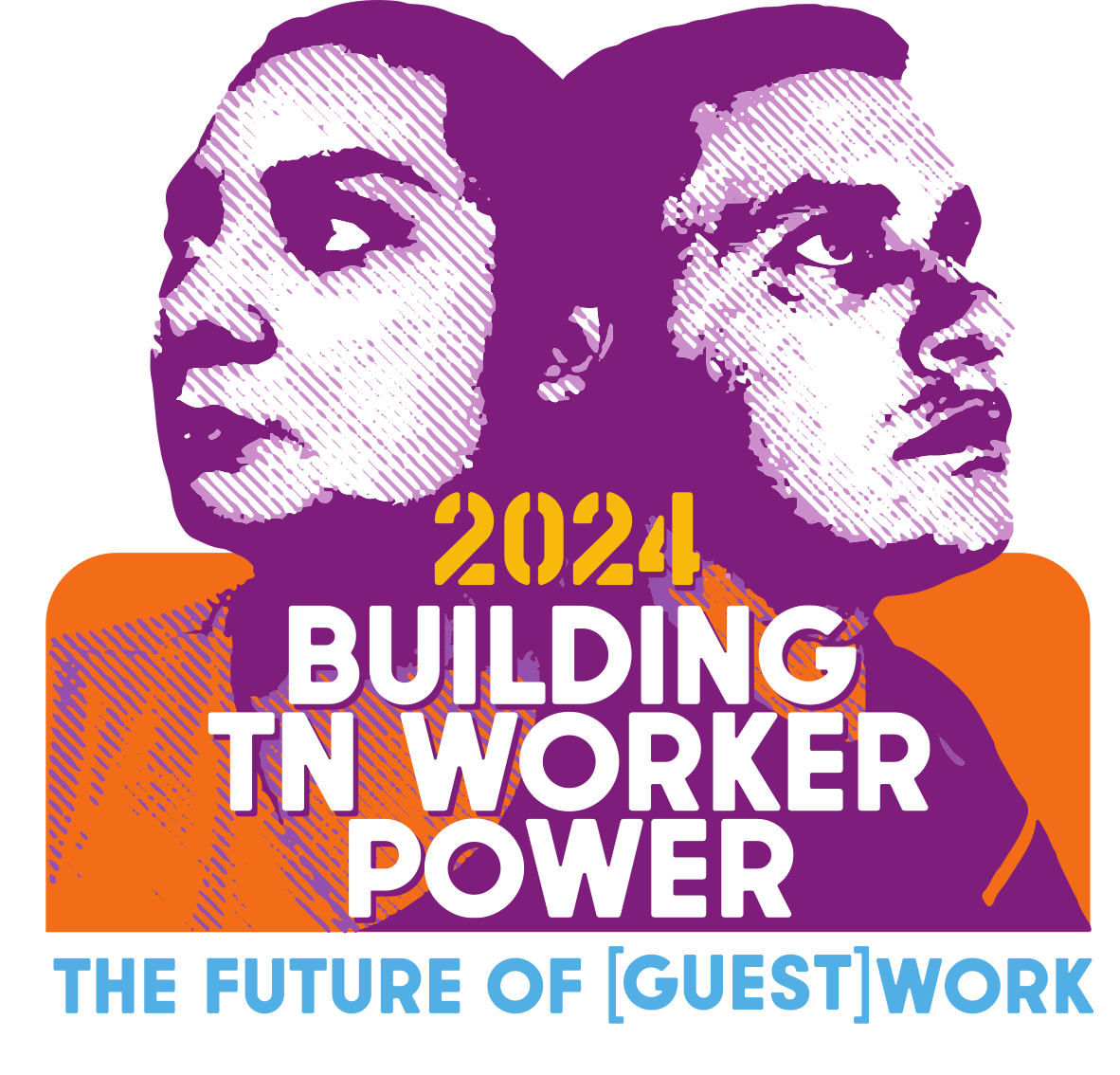
We just closed the third “The Future of [Guest]Work” summit in Atlanta, Georgia. The summit brought together workers on TN visas from across industries and states to build power and strengthen connections with allies.
Over the past three days, TN workers representing different industries, joined by Migration that Works members, developed an advocacy agenda that reflects the experiences and priorities of TN workers: an agenda that will guide our efforts throughout the year and beyond.
Migrant workers on TN visas identified the following advocacy priorities during this week’s summit:
- Facilitating access to justice by eliminating barriers that hinder their access to legal services.
- Eliminating unjust clauses in contracts which tie TN workers to abusive employers and limit their freedom to change jobs.
- Increasing data transparency which will help us learn more about the industries and states where TN workers are located and reach out to them with rights information and resources.
If you are not familiar with the TN visa, you’re not alone. TN is a little known and underregulated work visa category created when NAFTA went into effect in 1994. And although it has grown exponentially since its creation –+250% increase over the past decade alone –little information is published about the visa, the employers and industries that use it, or the conditions under which TN visa holders labor.
But this year we are going to change that. Together with allies, and with your support, we will continue to build TN worker power and fight for justice with TN workers.
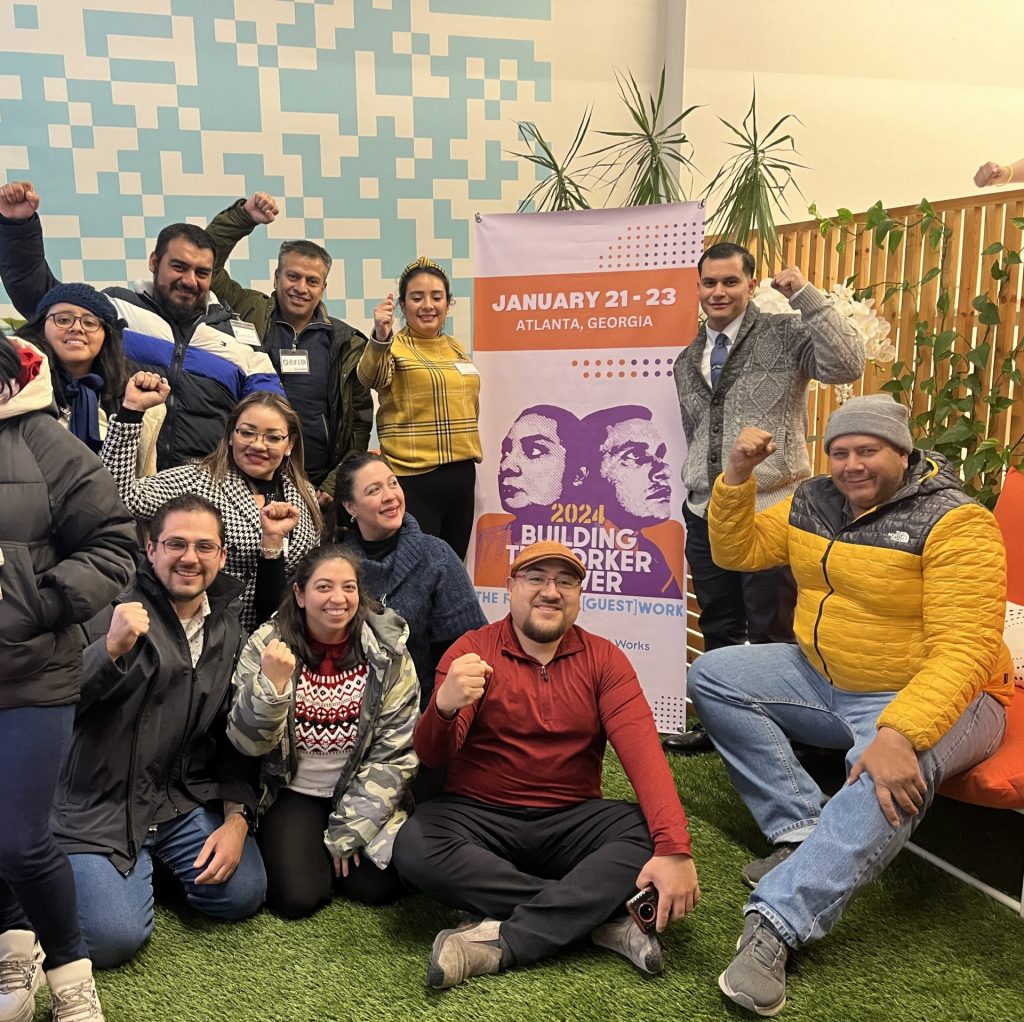 Here is a recap of all the action that took place during the three productive days of the summit:
Here is a recap of all the action that took place during the three productive days of the summit:
Day one. We spent the first day getting to know each other and specifically hearing about workers’ individual experiences with the TN visa in varied industries and geographies. Afterwards, we noted the parallels between workers’ different stories and built a shared narrative that shed light on the common abuses that many workers faced and started articulating a collective vision to advance worker justice.
Enrique, a veterinarian who experienced abuse as a TN worker, shared that “after 6 years of living with pain, discrimination and harassment, all I want is being able to choose a job, without fear of being lied to and put to work on different activities than the ones originally offered, or without just pay.”
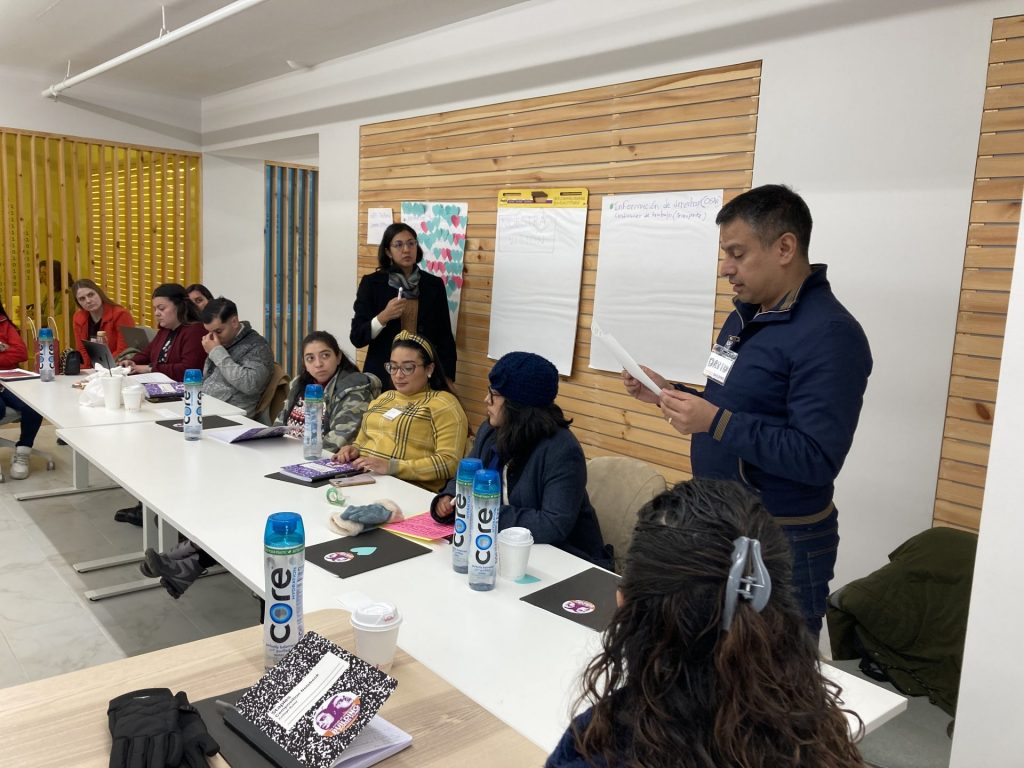
Day two was all about teamwork. Migration that Works members CDM, Polaris, The American Federation of Labor and Congress of Industrial Organizations (AFL-CIO), and Justice in Motion, as well as The United Food and Commercial Workers International Union (UFCW), joined TN workers to analyze advocacy challenges and opportunities, identify priorities, and outline a path toward change. Workers opened the day by presenting a collective statement about their priorities for reform of the TN visa category. Workers and allies discussed the current state of TN visa regulations, reviewed data trends, and conducted context and priority-mapping activities to set the groundwork for collaborative action.
On Day Three, workers and organizational allies met with representatives from the U.S. Department of Labor and the Mexican Consulate in Atlanta to share their priorities and demand justice for workers recruited for employment in the United States with TN visas. Adriana Barberena, a TN worker and Migrant Defense Committee Member, was chosen by TN participants to read the collective statement detailing worker priorities identified throughout the summit, including prevailing salaries, information transparency, access to justice, and protections against discrimination and retaliation.
Two workers also shared their experiences working with TN visas. Rosalinda Soriano, an autoworker, explained: “I was offered an engineering position, but I was put to work as a “picker,” carrying heavy autoparts. Job, pay, housing, transportation: nothing was like they said. When I became pregnant, and I couldn’t carry heavy objects anymore, my employer fired me. I speak out today to share my story in the hope that others won’t have to go through what I went through.”
Representatives from the Mexican Consulate and from the Department of Labor listened to workers’ testimonies, shared available agency resources, and committed to maintaining dialogue with workers and advocacy organizations to ensure that all those recruited for work under this visa category had the necessary resources to defend their rights.
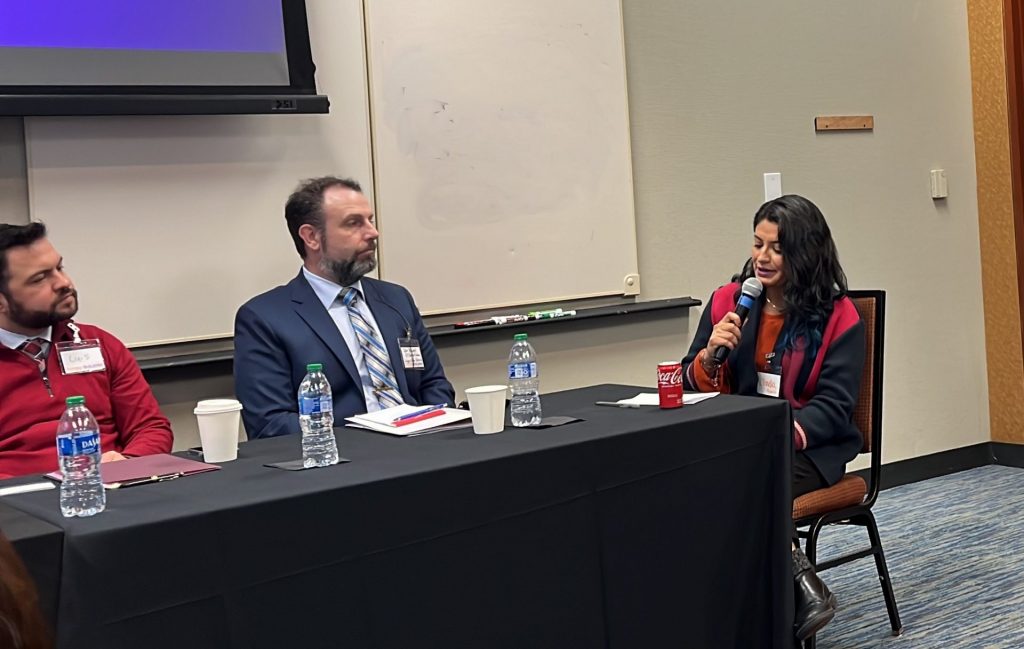 This summit marked a critical step in developing an advocacy plan to address persistent labor abuses and structural flaws in the TN visa program. We look forward to building together toward a shared vision for the future based on TN workers’ articulated needs and priorities.
This summit marked a critical step in developing an advocacy plan to address persistent labor abuses and structural flaws in the TN visa program. We look forward to building together toward a shared vision for the future based on TN workers’ articulated needs and priorities.
